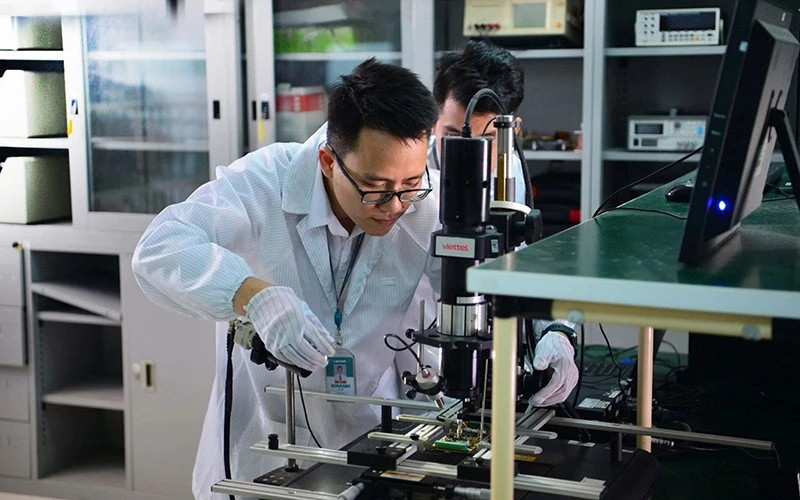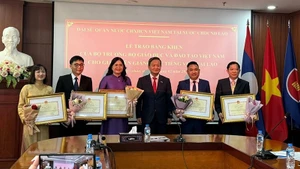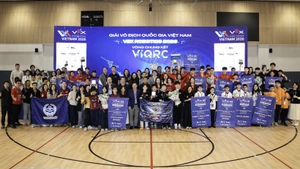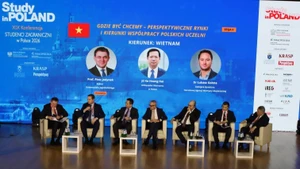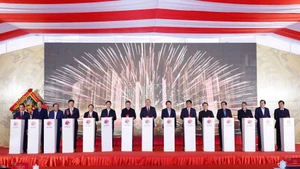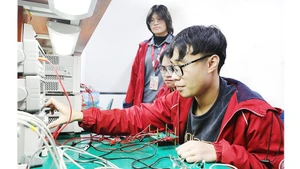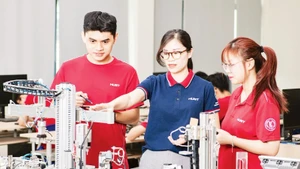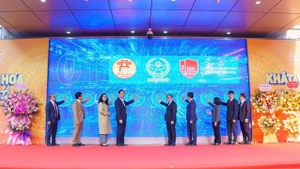However, the development of high-tech human resources in Vietnam today still has many limitations which have yet to create the driving force to foster the rapid and sustainable development of key economic sectors.
Experts say that one of the challenges for Vietnam to become a high-income country by 2045 is human resources, especially in high-tech fields. Therefore, Vietnam needs a systematic and long-term strategy to boost this human resource to meet the needs of emerging industries in the context of Industry 4.0.
Supply remains limited
According to the World Bank (WB), the supply of highly skilled human resources in Vietnam is currently limited, and it does not meet the needs of technology industries, with a shortage of semiconductor engineers. The high-tech industry requires more workers with university degrees trained in STEM fields (science, technology, engineering, mathematics), which can be twice as high as other industries.
WB statistics in 2022 showed that the proportion of workers with vocational or university and postgraduate training in Vietnam was 13%, much lower than other countries in the region. Vietnam’s problem in the technology industry is that it only participates in the intermediate production stage with low added value. The export of electronic equipment is still dependent on foreign-invested enterprises, while investment in research and development (R&D) remains very low.
The reason is that Vietnam lacks scientists and engineers with specialised expertise to promote innovation and creativity. “Vietnam’s supply of highly specialised and creative human resources is growing slowly and has not met the needs of technology industries,” emphasised Dr Andrea Coppola, WB Chief Economist in Vietnam.
Although universities in Vietnam are considered to provide good basic knowledge, interdisciplinary training and training linked to research and development of core technologies are still weak. Universities train many bachelors and engineers but have not met the expectations of large corporations for in-depth expertise, especially in the high-tech field.
Enterprises operating in high technology, information technology and AI-related fields are increasing in number in addition to many foreign enterprises in Vietnam, leading to a high need for high-tech human resources.
When the labour market requires large human resources, universities also need to change their training programmes and methods so that students can access the necessary skills to match the requirements of businesses.
The limitation of the current training process is that students have not yet accessed many specialised skills in high technology, which businesses require.
Innovation needed to meet practical requirements
Universities must cooperate with enterprises to develop high-tech industrial human resources to meet the demands of enterprises. At the same time, updating the curriculum of emerging, core and spearhead industries for high-tech fields is also advisable.
As one of the firms operating in the field of assembling and testing computer chip products for export and research and development in high-tech information, Intel Products Vietnam Co., Ltd. has seen many advantages when investing in Vietnam since 2006.
Kenneth Tse, Intel Vietnam’s General Director, said: Human resources are always a priority for Intel to develop further in the high technology and semiconductor industry. Intel recognises that cooperation between schools, the State and enterprises is a precedence that schools need to focus on, as well as developing training curriculums suitable for the rapid development of the technology industry. Creating more opportunities for students to participate in projects in the high-tech field should also be a priority.
In recent times, universities have increased cooperation with large technology corporations in training human resources in high-tech fields. Recently, some universities such as Hanoi University of Science and Technology, University of Information Technology, University of Natural Sciences (Ho Chi Minh City National University), Ho Chi Minh City University of Technology and Education, Lac Hong University (Dong Nai), and Viet Duc University (Binh Duong) have sent lecturers to Synopsys Vietnam Company to study about professional microchip training. Synopsys Vietnam is one of the branches of Synopsys Corporation based in Silicon Valley, the US, which has more than 37 years of experience in the semiconductor industry, with revenue of more than 6 billion USD in 2023.
At Synopsys Vietnam, lecturers can access rich academic resources from SARA (Synopsys Academic Research Alliance). Each lecturer is accompanied by a team of professional engineers and provided with instructions on using advanced tools and exclusive teaching resources.
Thereby, it can help lecturers successfully build high-quality and practical training programmes and lectures to help students improve their qualifications, meeting the requirements of businesses.
Associate Professor Dr Vu Hai Quan, Director of Ho Chi Minh City National University, said: In training and research activities, Ho Chi Minh City National University identifies cooperation with businesses as a lever to improve training programmes, meet practical needs, and be a fulcrum for research to be applied in practice.
In the development strategy for the 2021-2030 period, the university has identified three key areas of training and research for the semiconductor technology, biotechnology and AI industries.
Regarding training, the strategy determines that it will train 1,800 engineers and 500 masters in microchip design, in addition to training and granting industrial and international certificates in microchip design to about 15,000 engineers. At the same time, it will train 10,000 engineers and bachelors, 3,200 masters and 600 doctors in biotechnology and some related industries. The university also aims to train 20,000 bachelors and engineers, 2,000 masters, and 300 doctors in information technology and AI.
Regarding research, it was determined to master several core and foundational technologies in semiconductor technology, biotechnology, and AI and form many start-up businesses in these fields.
